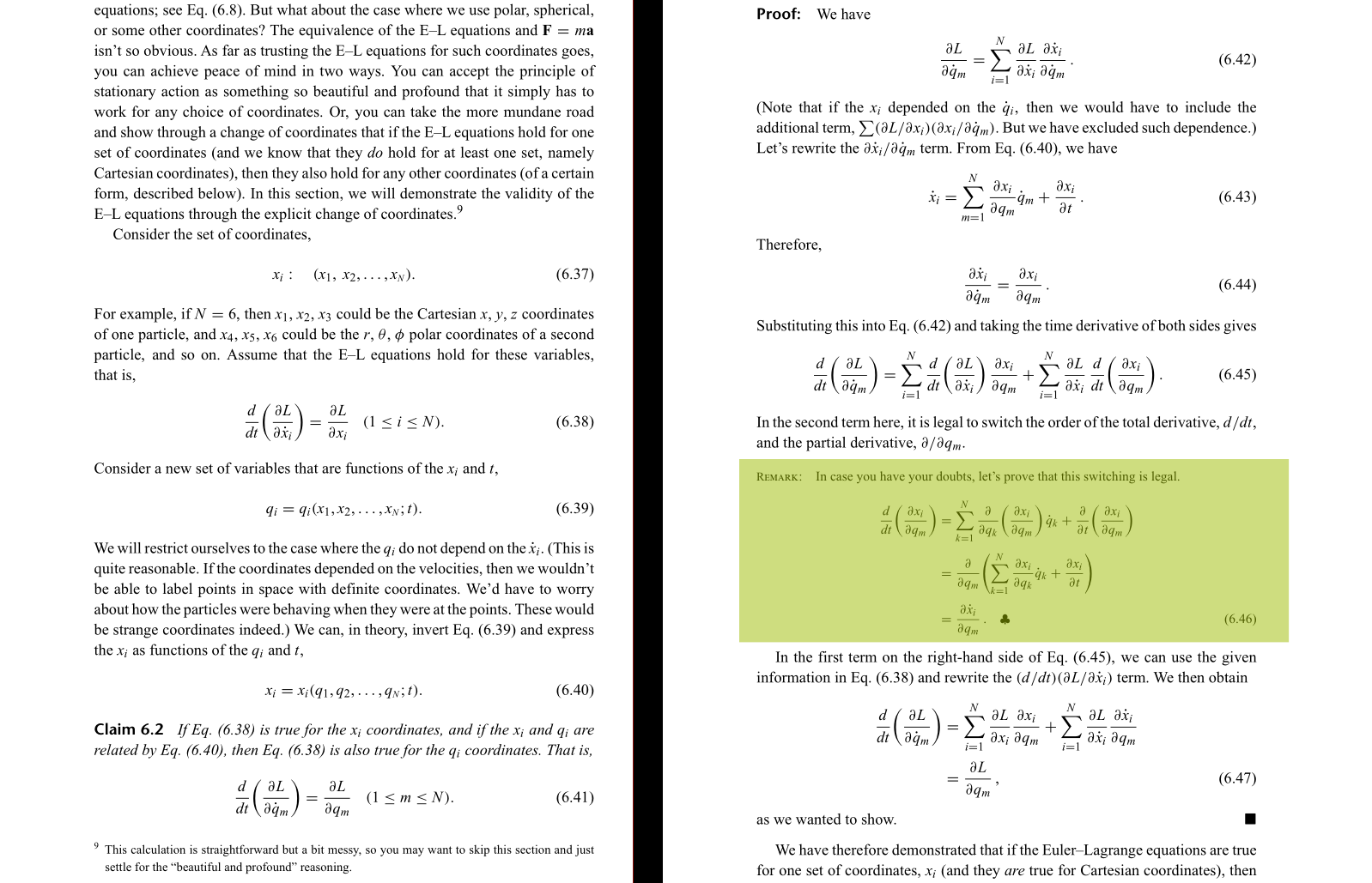This is a question about a specific proof presented in the book Introduction to Classical Mechanics by David Morin. I have highlighted the relevant portion in the picture below.
In the remark, he does this: $$ \begin{align} \sum_{k=1}^N \frac{\partial }{\partial q_k} \left( \frac{\partial x_i}{\partial q_m} \right) \dot{q_k} = \frac{\partial }{\partial q_m} \sum_{k=1}^N \frac{\partial x_i}{\partial q_k} \dot{q_k} \end{align} $$ He has essentially changed the order of differentiation from $\frac{\partial }{\partial q_k} \frac{\partial x_i}{\partial q_m}$ to $\frac{\partial }{\partial q_m} \frac{\partial x_i}{\partial q_k}$.
However, isn't this only valid if all the $q_k$ are independent?

